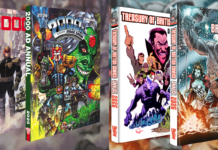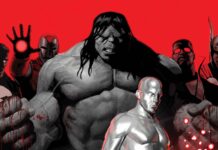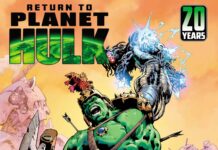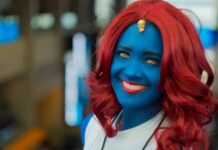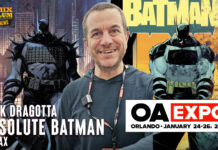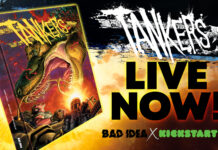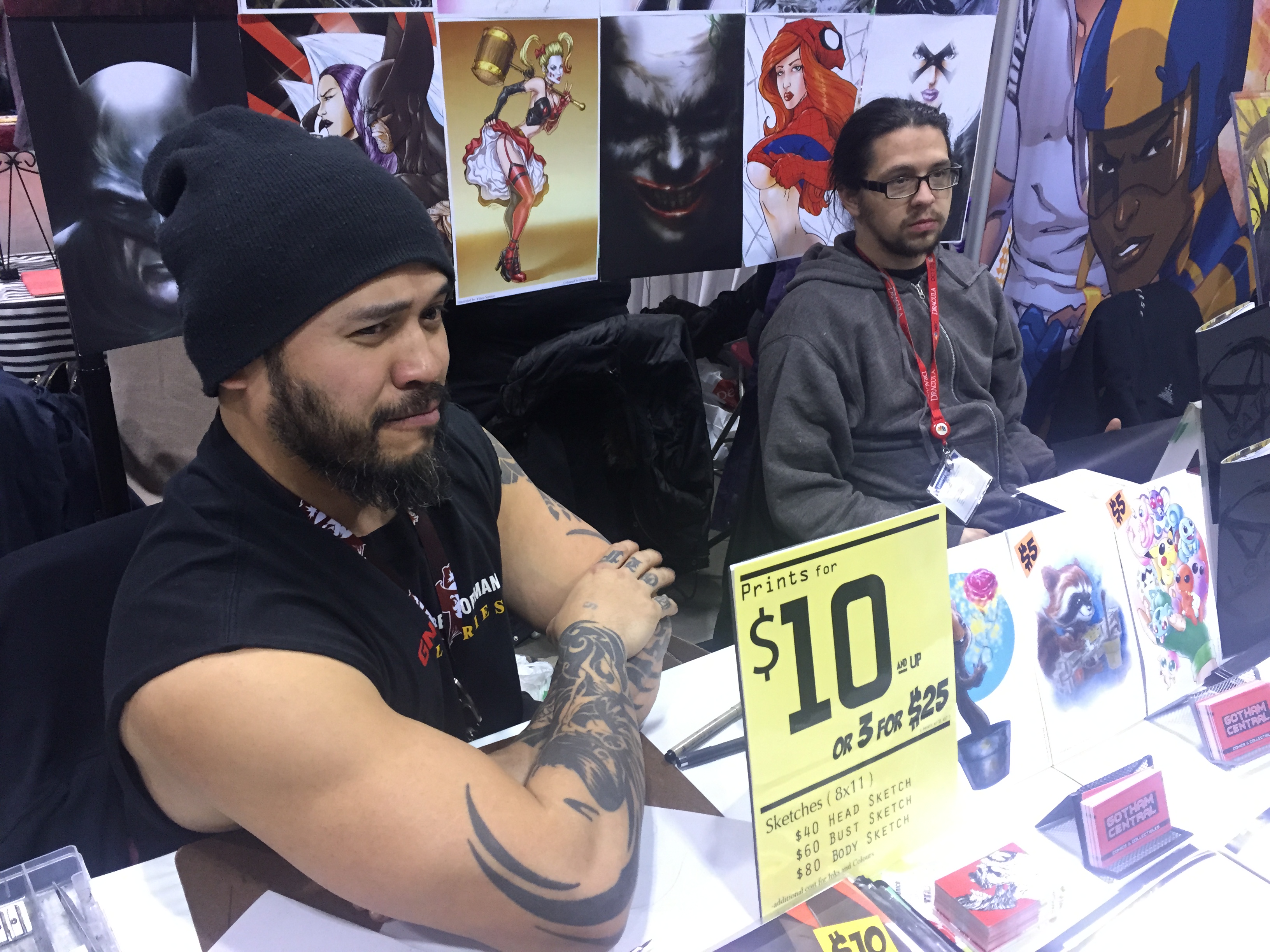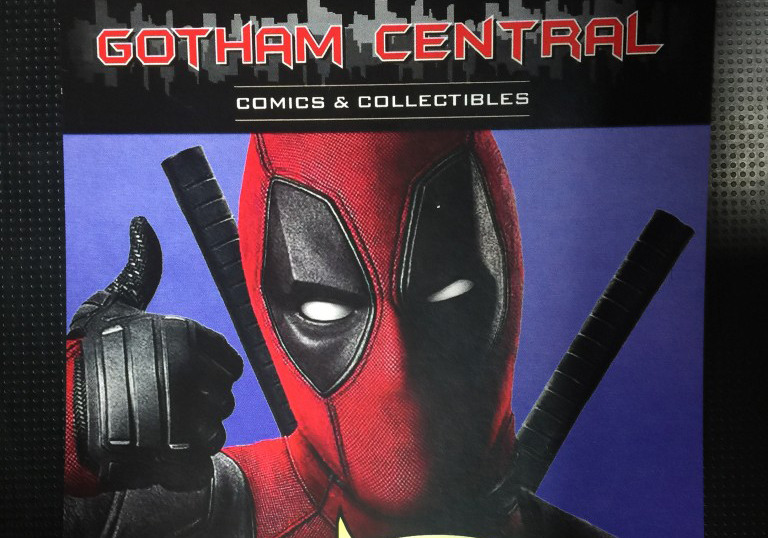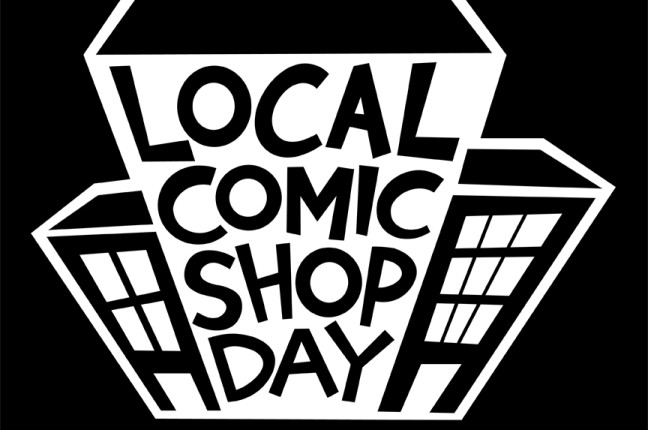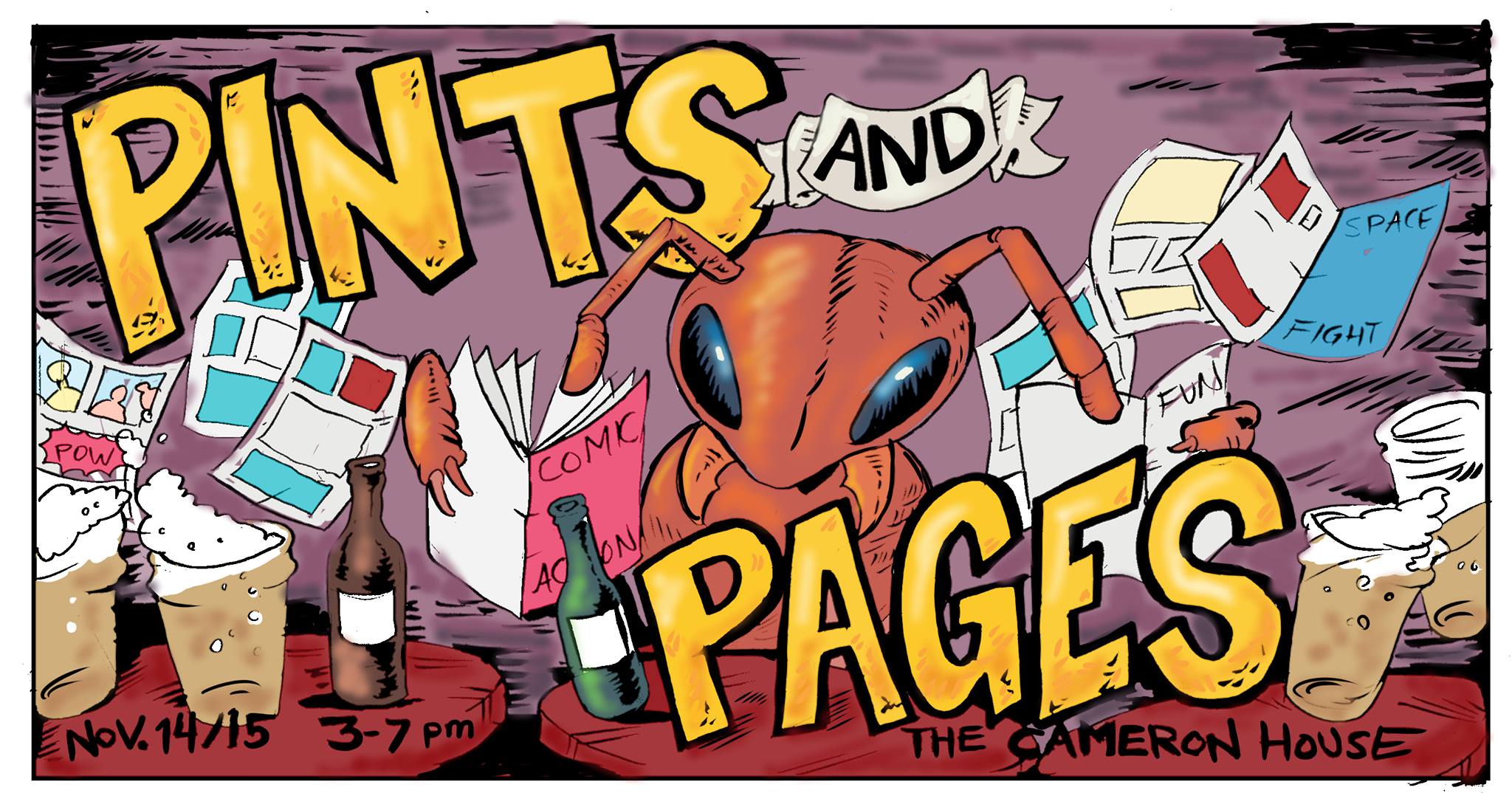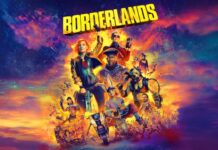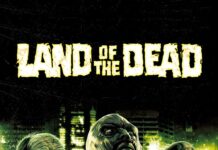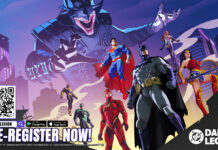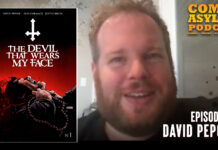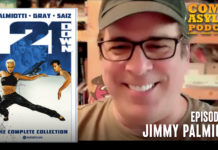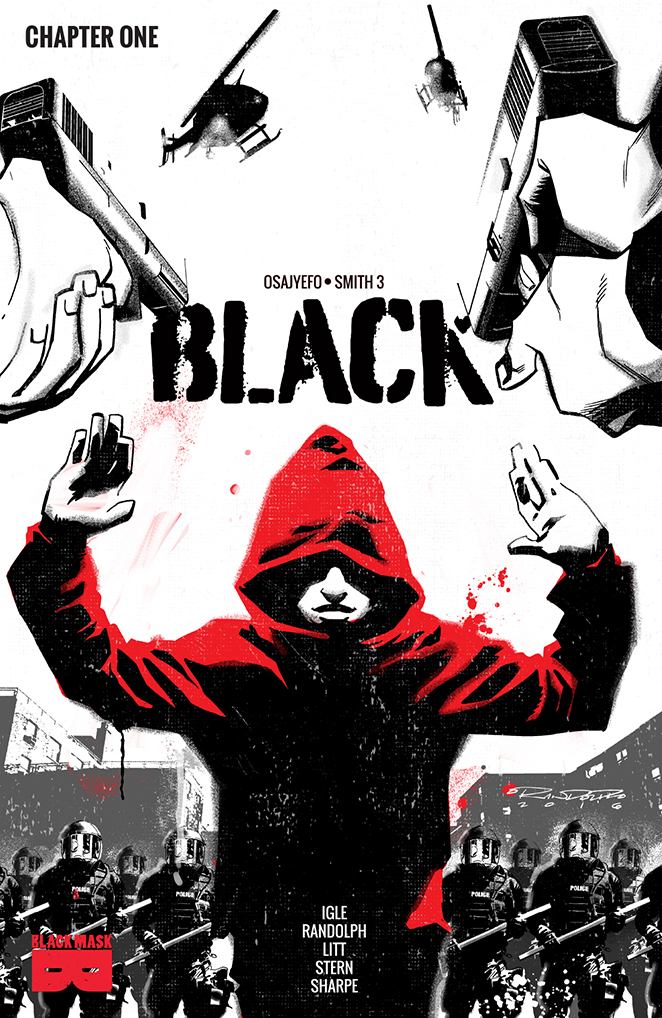 Comix Asylum’s Kwame Mason recently had the chance to chat with Kwanza Osajyefo about his love of comics, how the comic book industry views minorities and his creator owned mini-series Black.
Comix Asylum’s Kwame Mason recently had the chance to chat with Kwanza Osajyefo about his love of comics, how the comic book industry views minorities and his creator owned mini-series Black.
KM: I really found your story pretty interesting and I was at the Black Heroes Matter panel and there’s like a movement out there with black characters in comic books. I think you’re starting to see it bubble but it’s going to still take a couple of years before people look at guys like yourself, the way they did Stelfreeze and the rest of those guys when they were at the cusp of what is now a bigger part of the industry. Do you feel that same way about minorities in the comic book world?
KO: I definitely think there is a shift in the demographic as far as that content goes. Is it a bubble? That part I don’t know because what you’re seeing now is different from the blaxploitation era. Black people have a lot more control of their narrative and we can bring an authenticity to a lot of the content that’s being produced. We’re now able to tell a narrative in a way that people haven’t heard before. People have heard the Shaft narrative before and other people’s interpretation of blackness already so it’s almost as though we’ve struck something new. It’s not new to black people in terms of what we know but it is to a mass market audience and they are hungry for new stuff.
KM: When you say new define what that new is in comparison to the blaxploitation days of the early seventies to even the eighties.
KO: When I think of new I think of it in terms of being a black person growing up reading comics. I’m speaking for myself but I imagine other people have the same perspective being that it’s not a Caucasian person’s perspective on John Stewart anymore. It’s not having to settle for Cyborg being the person of color on a team. It’s us telling stories that come from our perspective with the context of blackness inherent in that storytelling. Even though superheroes function as escapism when you see a lot of these characters appearing, especially now there’s always this external context of their blackness but the internal context of their blackness isn’t in the story necessarily. Take a character like Miles Morales for example. He’s black and on the outside to the reader it’s cool but inside the book it’s like who cares? You don’t even know if there was slavery in the Marvel Universe.
KM: What are your thoughts on the idea of taking traditional characters and changing them into Black or Hispanic characters? Do you feel that is progress or a lazy way of saying we need more diversity so let‘s flip the character instead of making a new one?
KO: I think it’s business. It’s not so much that publishers haven’t tried to introduce characters of color. They may not have always done it well or thoughtfully but it’s hard to get into the market and create new characters that people are invested in. I think that when you look at the duopoly they are trying to get your attention for these characters by either having them take over the roles of the known characters or being heavily focused on beside them. Is it the right way to go? I’m not so sure necessarily but I think from a business standpoint it’s probably the only way people would really read a Miles Morales story. If his name was Kid Arachnid he would probably have less urgency in the store because customers would say “Who’s this? He’s nobody”. But once you make him Spider-Man then he has a little bit more credibility.
KM: Let‘s go back to the beginning. What are your earliest memories of reading comics and how were you introduced to the genre?
KO: Man, there’s so much. I started reading comics at an early age and my first comic book, if you can call it that was Encyclopedia Brown (laughs). Those were the things that were easily accessible. I’m dating myself here a little bit but I don’t think that specialty shops were quite the thing back then. A lot of my exposure to comics was in supermarkets that were on the spinner racks and you kind of got whatever they ordered.
KM: I actually miss those racks.
KO: I think we all do. I don’t think anybody has figured out how to get the new version of that going again. But that was how I was exposed to comics and it started with Archie and Peanuts. Then I discovered Teen Titans. I think I read that New Teen Titans black and white collected edition until the pages fell off. That graduated me into Power Pack, the New Mutants and the X-Men. When I found out that people actually made these and that fact sunk in I thought that this is something I want to do. This is a job that I want.
KM: Right. This is something that you knew you wanted to do from an early age. Like a kid that says he wants to be a football player or I want to be a basketball player, you decided that you wanted to be in the comic book industry.
KO: Oh yeah definitely. I started making comic books when I was five (laughs). If I let my mom do it she’d probably try to publish some of that stuff and embarrass me.
KM: Right, right (laughs). I bet there are some classics out there.
KO: Oh yeah (laughs).
KM: When did you realize that black heroes were few and far between?
KO: Probably in my mid to late teens which coincided with the appearance of Milestone. I really hadn’t given it much thought that I didn’t exist as a person of color in comics. When Milestone hit the scene something clicked in my brain. Static was a character I really identified with who wasn’t a stereotype or a trope. He was a nerdy kid who lived in a mixed, average neighbourhood and had all of the same problems that I did. Being smart, being bullied all of those things that are inherent in a character like Spider-Man but in the context of being a black person. Seeing all of those characters made it dawn on me and it was like holy crap! There’s just Storm in the X-Men and Sunspot.
KM: What I find interesting is that I’ve gone to a few conventions and I’ve talked to black people about the same question: When did you realize that black heroes were few and far between? A lot of them said the same thing. They never thought about it until something kind of sparked and I’m wondering what that says about us and our acceptance of certain things? When I was growing up I just loved these characters and never really thought about their race. Once I got older and was seeing a Static or a Power Man or Black Panther I stopped and thought where’s the rest of them?
KO: I think that part of it might be that because comic books are escapism that you’re often projecting yourself into a character that you identify with thematically and not necessarily personally all of the time. Age also plays a role because you start out reading them and it’s just fun and as you get older your tastes change. You become aware of more things and you start to grow up.
KM: When you figured out that there aren’t a lot of black characters in the comic book universe, do you remember how you felt about that?
KO: It didn’t bother me much until later because by the time Milestone emerged I was just excited that it was happening. From the time when they started publishing to when it shuttered that was really scratching that itch. What became apparent afterwards was that no one within the comics industry was actively trying to fill that void. Milestone closed when I was in the middle of college and then right after I graduated I started at Marvel. In the ten years between me working at Marvel and then at DC nothing had really changed and nobody had given it any thought whatsoever. I don’t think there was ever any malice I just don’t think there was any perspective on it. It’s one of the things I point out when I talk about my work on Zuda at DC with that web imprint. You’ll notice that our first work was Bayou. It wasn’t because of any sort of proclivity towards black speculative fiction. I like Jerry Love’s work and he was someone that I approached in particular for his style of storytelling that of course resonated with me because I was a person of color. Of course that should speak to me the same way that Superman might speak to someone with a white male power fantasy. A character light Bayou isn’t going to register in your mind unless you’re, for lack of a better term, more woke.
KM: Comics reflect society and the eras they’re created in like World War II, the Vietnam War and the Civil Rights Movement for example. Do you think the industry has done a good job including black people in that world and its evolution?
KO: That’s an interesting question because I would think individual creators who did their own thing made some strides there whereas the duopoly is driven by business and optics while trying to reach different audiences while their core audience dwindles a bit. It isn’t to me driven by some inherent need to be fair or equal. Diversity is a word that’s tossed around a lot these days and as someone who worked in the industry for ten years and saw that at least internally they are not that diverse it became clear that there are more issues than inclusion. We don’t have enough people with enough authority inside the walls of these two influential institutions driving a lot of the content. If you look at something like DC and the Dark Matter initiative they are launching the five creators that they are displaying to readership are four white dudes and Jim Lee. It’s really this one-sided perspective and it’s almost laughable. They decided to step out and pursue characters of color with these guys as the voice behind it. I don’t really understand why you think it’s ok aside from the fact that there is nobody there inside your offices who has the authority to say this is not ok.
KM: You’re basically saying that they want to be diverse but the problem isn’t diversity it’s inclusion. If you include more people of color behind the walls you’ll become more diverse in your writing, artwork and business sense.
KO: Absolutely because then you have executive voices with the right perspective for what it takes internally and externally to drive these characters and make them grow and to make sure that there is an audience to support them.
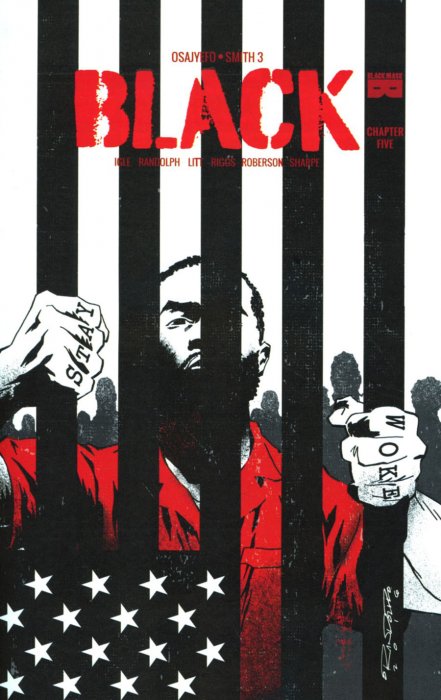
KM: Let’s fast forward from your time at DC and Marvel. How did you come up with the idea for Black?
KO: I think Black was just my experience working in comics along with my fandom coalescing at some point into this idea. Having grown up as a fan of the X-Men and often hearing people say that it’s a metaphor for minorities and is supposed to be about the civil rights movement where Magneto is Malcolm X and Professor X is Martin Luther King as a black person I was always like “No”! What are you talking about? If Wolverine is driving down the street in a whip he isn’t getting pulled over. The cops aren’t just going to roll up on him and say “Hey that guy looks like a mutant. He must be up to something.” So what’s the metaphor again? Giant robots are a huge stretch for a metaphor. Thinking about that, the characters that would have the most problems would be Nightcrawler and Beast. But outside of that I thought let’s scrape away the metaphor and that immediately made me think of what eventually became the tagline for Black: What if only Black people had super powers? The minute I said it I was like whoa. I think that’s how everybody else has reacted to it, “Yeah that would be awesome if it happened but also a huge problem.” All of that context which comes with that is inherent in the question. I thought it was a lot more powerful and immediately understandable than a mutant especially in the context of modern superheroes. If everybody in your universe has powers then why are mutants such a problem? It’s such a fine line of bigotry that’s just not believable at all. I wanted to take my love of superheroes and that idea and also create a world and a cast where there is a focus mainly on Black people and a variety of them. Often in comics you have the one character who’s been included for diversity. In my opinion it’s like the modern word for tokenism where one character is meant to represent all Blacks. I wanted to take that weight off a cast of characters and have Black people shown in a way that I know them. There are all different types, backgrounds, politics and world views in the black community. To a lot of people black means one thing and that’s why I didn’t get fancy with the title of the book.
KM: What made you want to use the social justice point of view when creating this superhero story?
KO: I don’t really like the idea of it being social justice I just think its contextual. I’ve often heard people critique the book because of those elements and I don’t think that as a Black person in America that we have an existence outside of that context. That’s just reality for me. You can call it social justice but that’s just being Black (laughs). If that’s uncomfortable for you it’s really uncomfortable for us. I came with the idea and the entire concept ten years ago. Tim (Smith III) and I started working on it then but jobs, life and those sorts of things got in the way. I took a job at DC and that was my primary purpose so I put writing on the backburner. Over time though the idea, much like the industry, hadn’t changed. When I came up with the concept it was around the time just post the Rodney King beating when Amadou Diallo got shot. By the time we were ready to launch the book that list had grown. Now we had Tamir Rice, Eric Garner and while we were in the middle of it Philando Castille – the list is endless. It’s not like there’s a point for a catalyst this is just a part of our history in this country. While having Kareem being shot by the police in the beginning might be new to comics this is not new to the black experience. This is your cousin, your brother, your sister, an aunt. This is a reality and it was one of the critiques as well that I often got about the book. “Oh, that’s not realistic that the cops would just roll up and shoot somebody”. So, in a book where I write about people flying and shooting lasers out of their fingers the thing that you can’t believe is a trigger-happy cop.
KM: (laughs) Not in their defence, but sometimes reality is hard to swallow.
KO: Purely.
KM: When you look at the cover of your book, it’s a hard pill to swallow seeing three Black men being lynched. What led you to using such imagery depicting the Black experience on your covers?
KO: That was really inspired by Khary’s (Randolph) creativity on the first issue. He understood what was happening in the first chapter of the story and decided to create that iconic cover. Once I saw it, it definitely wasn’t what I envisioned and when I approached Khary I was thinking of a very different approach. Once he delivered his first cover it set the tone for what we were going to do for the rest of them. Collaborating with him a lot of the inspiration of it was to cover those themes in the Black community.
KM: Where are you at now as an independent creator with your crew?
KO: Black Mask has been a great partner for us. Our original intention as a Kickstarter was to put out a very small run as a self-published book. We had no idea it would grow to this extent. We thought it would be a stretch if we got the amount we were asking for so the response to it has been amazing. Black Mask wants us to do more and we’re working on stuff that actually should be announced very soon. There will be subsequent books. My original intent was just to do three pillar books and that’s still going to happen. We’re going to do some stories in between just to expand the original universe to focus on some of the original characters in the first book. That’s in the works right now.


